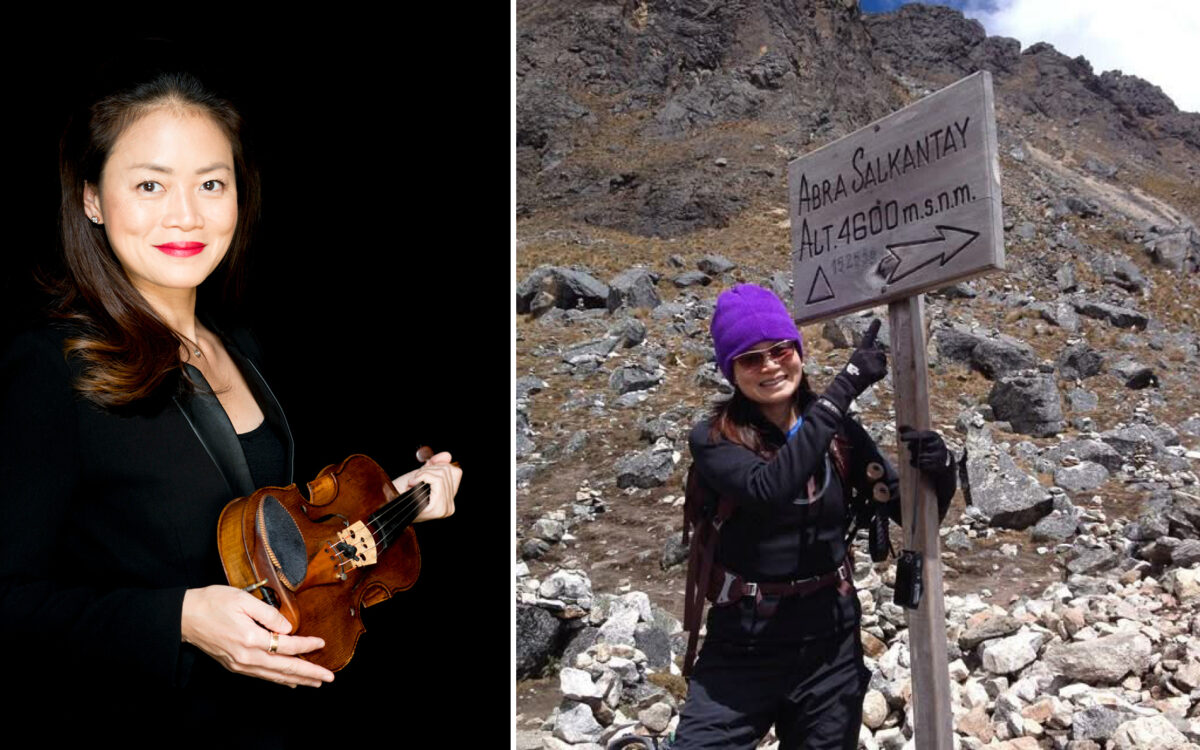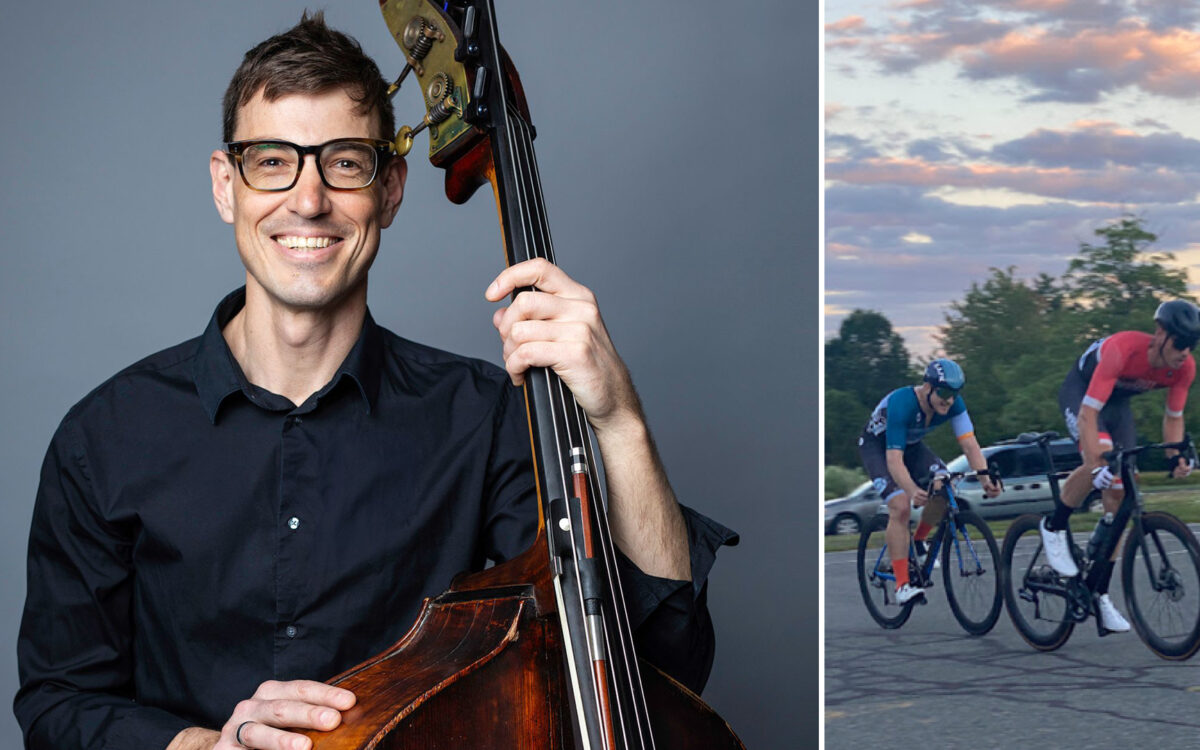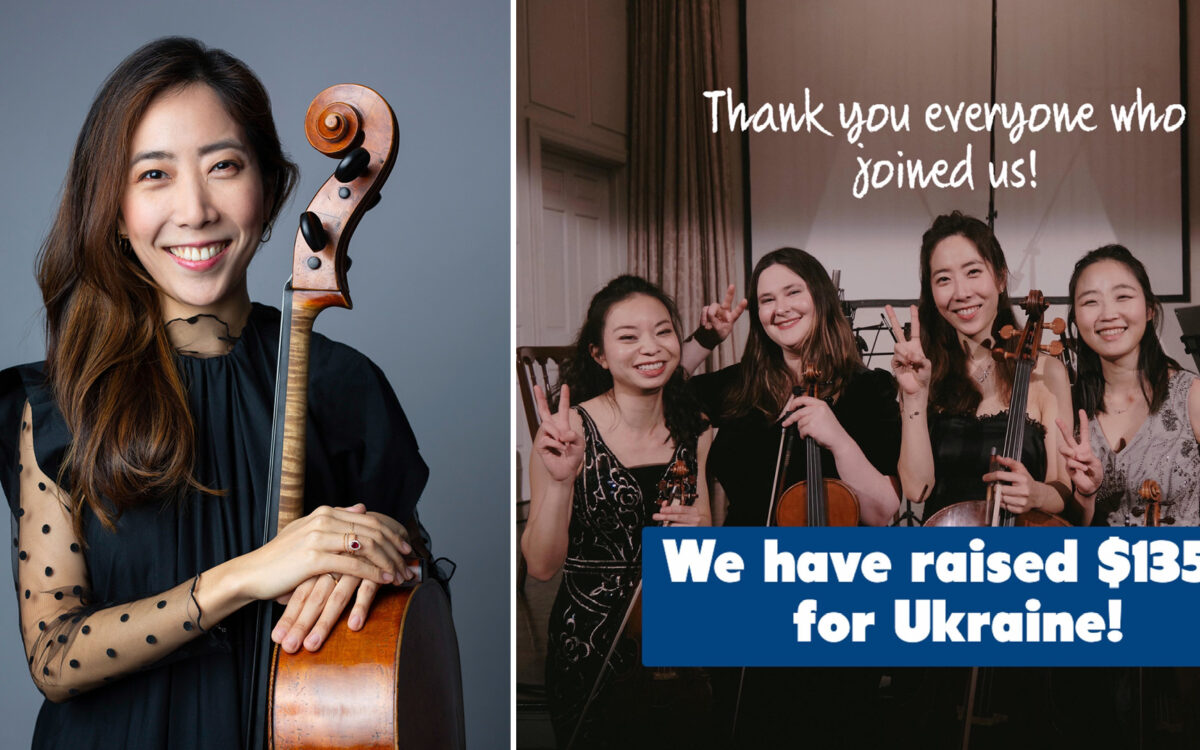Our Gewandhaus Colleagues on Finding the Downbeat, and How Loud Americans Really Are
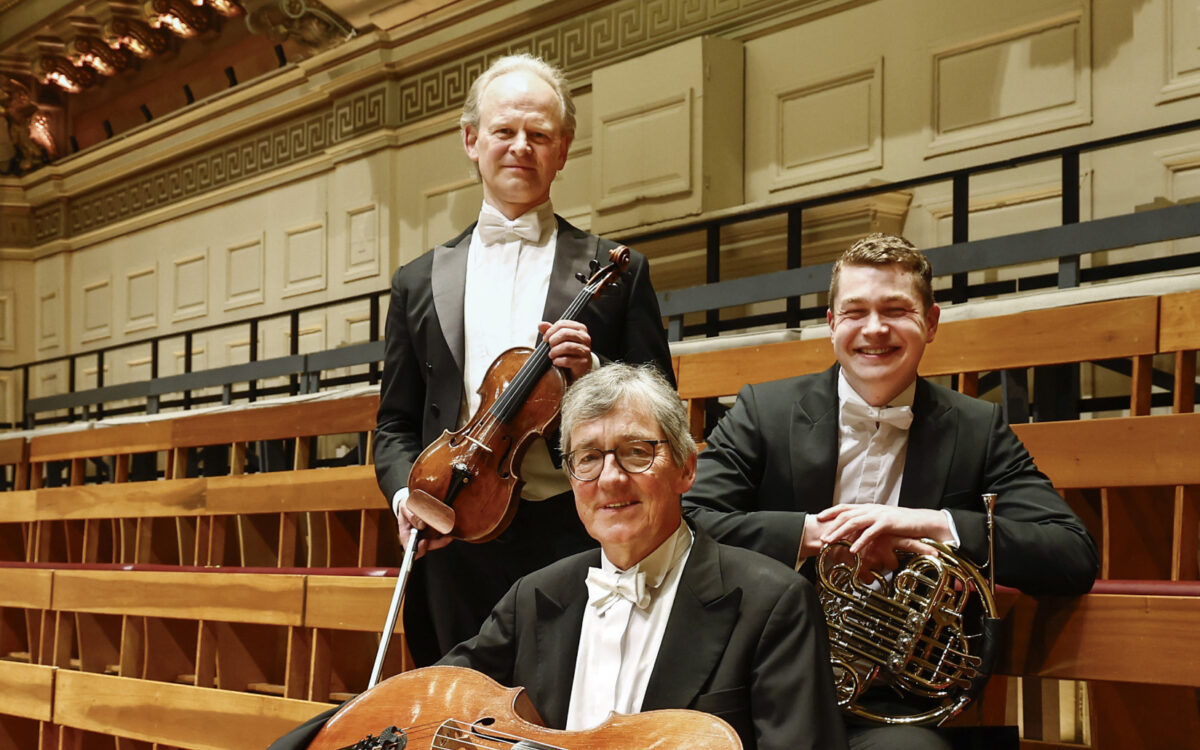
The close ties between the BSO and Leipzig’s Gewandhaus Orchestra stretch all the way back to 1881 when a Leipzig Conservatory-trained musician became the BSO’s very first conductor.
In 2018, 137 years later, the two storied institutions began a special exchange program — every year, several BSO musicians will spend part of the season in Leipzig playing with the GHO, and the same number of GHO musicians will journey to Boston.
This year we were thrilled to welcome GHO horn player Simen Fegran, cellist Matthias Schreiber, and violinist Gunner Harms to the BSO for our spring concerts. As their time with us came to a close, we asked Fegran and Schreiber to reflect on their time in Boston and what was different – and not so different! – about playing with the BSO.
Were there some challenges in adapting to the BSO and our style of playing?
Fegran: I knew it would be different in some ways. I was part of the joint concerts between the BSO and Gewandhaus in 2019 and prior to that project, there was a lot of talk about how the style and aesthetic would be different. We also don’t tune to the same frequency! Those were some of the concerns people had, but in the end being a good musician is about listening and being adaptable and trying to match what your neighbor is doing.
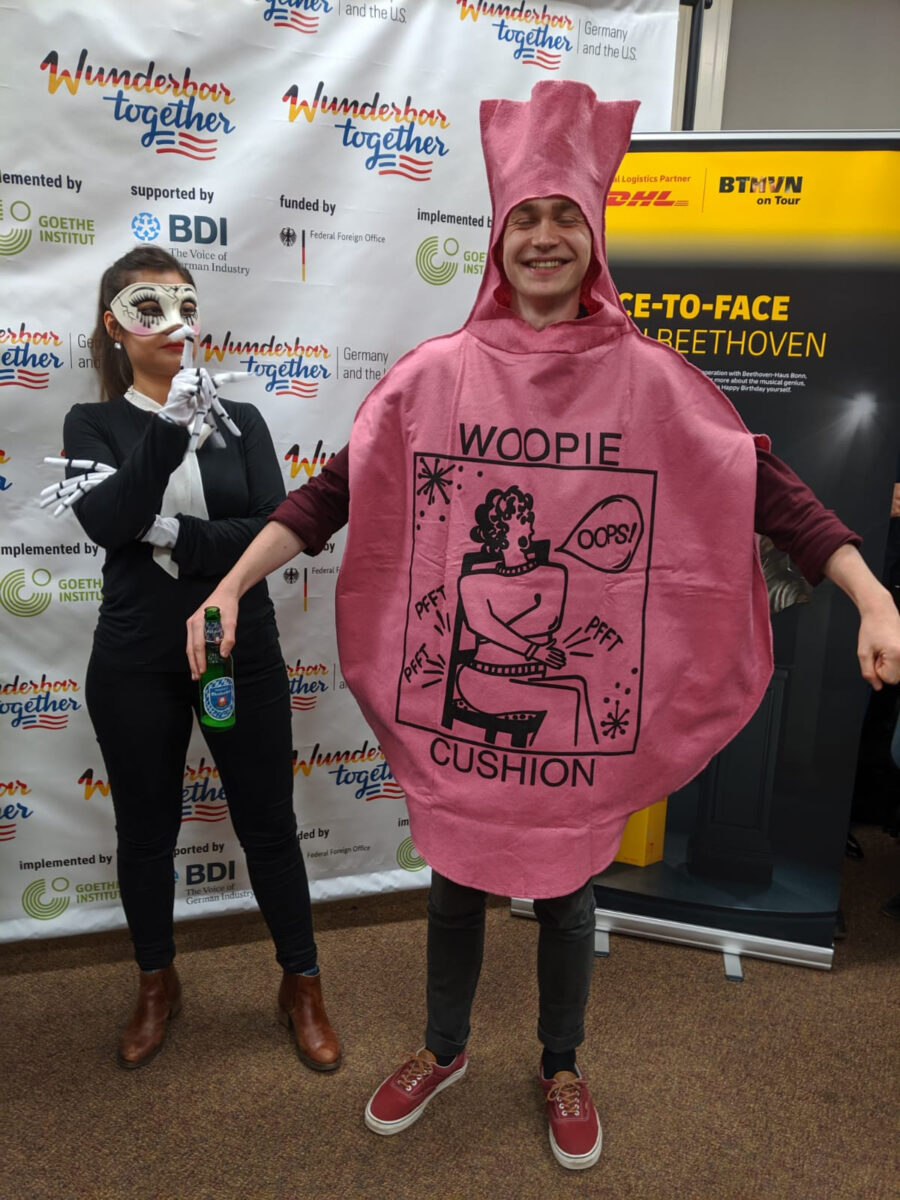
Schreiber: Something that I think is typical of American orchestras — they will begin playing right when the conductor gives the downbeat. We begin a little bit after, sometimes extremely late! It’s always a bit of an adventure with us [the GHO], because no one wants to be the first to play. I think it produces a different sound; it makes it a little more light and delicate. It’s really just different traditions.
Fegran: In Leipzig, people don’t want to be themselves too much in the beginning. They want to follow the crowd, so, no one wants to be the first one to play. Eastern Germany was such a different place, and for 30 years this mentality has stayed deeply a part of the orchestra.
I find the orchestra here to be more precise from the start. So, I tried play a little earlier and precisely. If I had to put it in terms of horn play, here, it’s tongue-before-air. In Leipzig, the sound develops more.
We all love music, and I find this is true everywhere. That makes it very easy to come here.
Matthias Schreiber, cello, Gewandhaus Orchestra
What did you find that actually wasn’t too different from back home?
Fegran: In most ways, we’re very similar. As musicians, we’re trained to listen to people around us and adjust. That’s a quality you bring anywhere you go, whether that is and orchestra in the U.S. or just a different orchestra in Europe.
This exchange is an opportunity to be part of a different musical world, a different musical tradition, and experience something that we won’t get in our job at home. It’s ultimately a chance for everyone to become a better musician.
In three months of intense new impressions, there are so many things I’m taking into the practice room already here. I’m trying to learn as much as I can. It's interesting to be immersed in a different aesthetic of horn playing and I've felt very welcomed and included by the BSO horns in my time here.
Schreiber: Music everywhere is the same. That’s what’s beautiful, there’s no difference. Of course, the orchestra plays a little differently than back home. But I’ve been around long enough in this job, I’m able to react appropriately to how things are different here.
We all love music, and I find this is true everywhere. That also makes it very easy to come here. The language is a bit of a challenge for me during rehearsals, but I figure it out.
What were some American stereotypes you found to be true?
Fegran: Everybody really does ask me how I am all the time. In Germany that’s a question people answer very honestly instead of saying just, “good, how are you?” I’m still getting used to not saying “Oh gosh, you know…”
People do have very loud voices and are amazing small talkers. I feel like people bring along a lot of energy into daily life. They’re energetic, enthusiastic, and positive.
I feel here it’s very easy to come in as a new person. People are nice in Leipzig, but you have to sometimes crack them open a little. Here it’s like, “you’re new! That’s exciting!”
Schreiber: I do find it true that Americans only drive in cars. But on Easter Sunday I took public transit out to Middlesex Fells and found there were a lot of people out walking around! I was pleasantly surprised!
Another stereotype, this is a positive one though: Americans are very open, and I actually find this very nice. It makes it very easy to be here, even when I struggle with the language. Everyone’s just happy to have me trying.
Boston is wonderful. It’s a very European city, which makes it more comfortable for us. I wish I had more time here.
Schreiber’s quotes have been translated from German as accurately as possible.
Maya Shwayder is the BSO’s Senior Contributing Editor and Copywriter.

